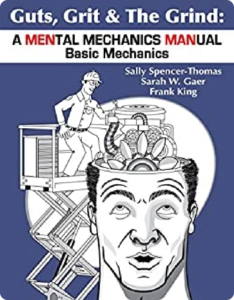From the Courtroom to the Comedy Club: Empowering Legal Professionals through Mental Health Resilience
In today’s high-stress legal world, the weight of long hours, critical case outcomes, and relentless expectations can leave even the most seasoned legal professionals feeling overwhelmed. Often, the very culture that celebrates a sharp mind and a relentless work ethic discourages vulnerability and discussion of mental health. Yet as I’ve learned through my own tumultuous journey—from performing stand-up comedy to navigating personal crises—the path to true resilience begins when we acknowledge our stress and take action to manage it.
My keynote, “Mental Health Matters: Resilience and Well-Being in the Legal Profession,” was born out of firsthand experiences of balancing humor with serious, life-altering challenges. I remember the times I stepped onto the stage with a heart heavy with self-doubt, yet armed with the belief that humor could be a powerful antidote to despair. That same philosophy applies to the legal arena. Law professionals are no strangers to pressure; however, it does not have to come at the expense of personal well-being.
The legal profession, with its intense focus on precision and success, often leaves little room for discussions around mental health. Many attorneys feel compelled to conceal their struggles due to the fear of stigma and the pressure to project strength. This prevailing mindset can lead to burnout, compromised personal health, and ultimately, reduced professional performance. Research continues to show that persistent mental stress has a direct correlation with decreased productivity and, in some cases, even serious health implications. For a profession built on logic and evidence, understanding the tangible benefits of mental wellness is imperative.
In my sessions, I emphasize that resilience isn’t about denying the pressures of the job—it’s about acknowledging them and developing strategies that transform stress into strength. For instance, techniques such as mindfulness exercises, structured stress assessments, and collaborative peer support are essential tools in today’s legal practices. These methods are not just fleeting trends; they are actionable steps that professionals can integrate into their daily routines. When legal teams start to explicitly support mental well-being, the results are profound: more focused work, higher engagement with clients, and improved job satisfaction.
Moreover, by drawing on humor as a universal language, I show that even the weightiest topics can be approached with levity without dismissing their seriousness. Laughter, after all, is a powerful reminder of our humanity—it breaks down barriers and opens up spaces for genuine, supportive dialogue. Legal professionals who embrace this perspective often find that it not only alleviates immediate stress but also builds a long-term foundation for sustainable success. Importantly, these strategies allow individuals to take responsibility for their own health, leading to an innovative shift where mental well-being is embraced as part of professional excellence.
Ultimately, as the legal field continues to evolve, so must our approach to mental health. The time has come for legal professionals to reclaim the narrative around stress and burnout. By adopting practical, evidence-backed strategies and fostering an environment of openness, lawyers can sustain not only their careers but also their well-being. This isn’t merely a personal victory—it’s a shift that can lead to stronger legal teams, more compassionate workplaces, and a holistic vision of success.
Make a Quick Call

